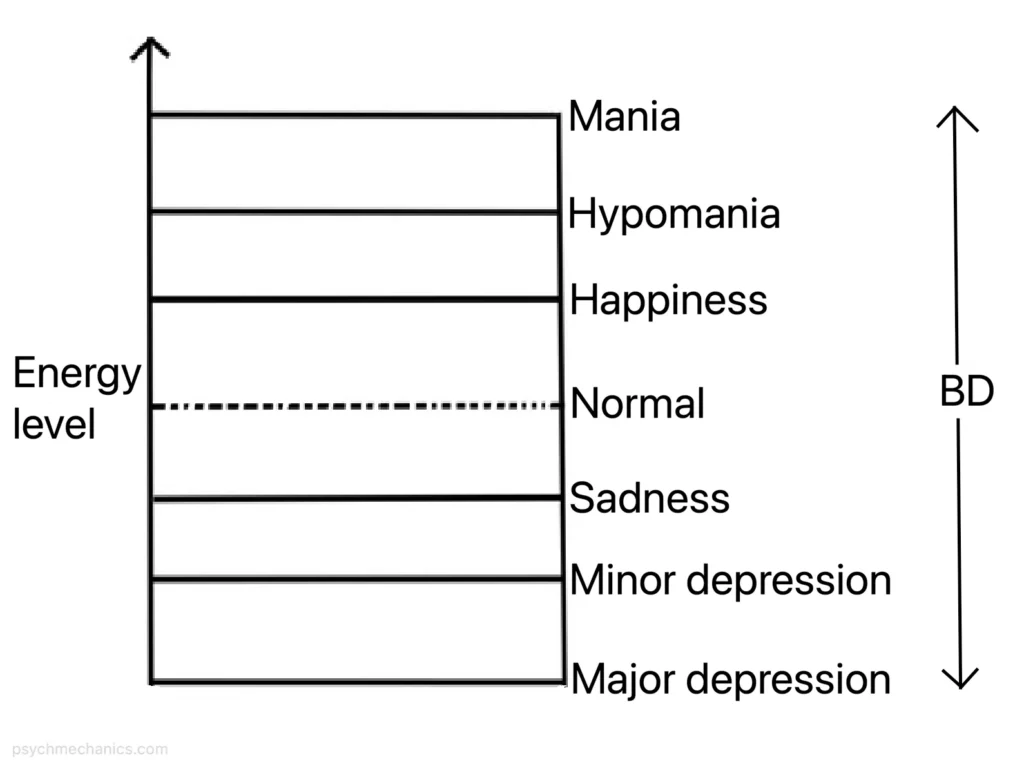Hypomania (hypo = under; mania = madness) is when a person experiences abnormally high energy levels. The state is less severe than mania, where a person experiences such high energy levels that they engage in reckless and harmful behavior.
Mania and hypomania are symptoms of bipolar disorder, but a person can experience hypomania without suffering from any mental health condition.
The negative consequences of hypomania are less severe than mania, but they do disturb a person’s daily life.
In bipolar disorder, a person experiences severe episodes of mania and depression, high and low energy states, respectively. In cyclothymia, a toned-down version of bipolar disorder, a person experiences episodes of hypomania and minor depression.
When a person experiences a hypomanic episode, their behavior seems unusual to those around them.
Hypomania vs. happiness
A hypomanic state resembles happiness. The person experiencing a hypomanic episode has high energy levels and a good mood. They feel super-confident and invincible.
The key difference is that in hypomania, a person seems to lose their sense of self. That doesn’t happen in happiness. Also, hypomania disturbs a person’s life to some extent, but happiness rarely does. Hypomania is a sort of mad happiness.

Taking the hypomania test
This test consists of 15 items on a 5-point scale ranging from Strongly agree to Strongly disagree.
While going through the test, think of the phase you recently went through that you suspect was hypomanic. Answer each item based on how you behaved during that time.
The test is 100% confidential, and your results are not stored in our database.


